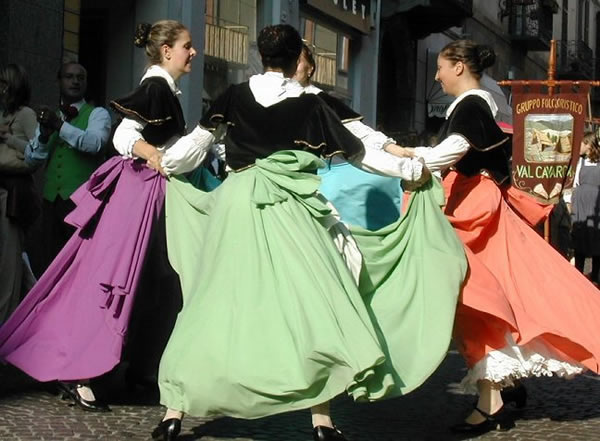Most of the world’s major religions proselytize (for some, it’s a major facet of the faith), and eagerly accept converts. Except Hinduism. Hare Krishnas notwithstanding, you really can’t convert to Hinduism, because it is much more than a set of beliefs and practices. Hinduism is a system that you are born into, a fixed hierarchy of families and castes. You are who you are because of your birth, and nothing can change that. Therefore, logically, anyone born outside the system must forever remain outside.
A non-Hindu can’t become a Hindu.By analogy, I’ve been wondering: can a foreigner become an Italian?
I don’t think so. Not in the same way that an immigrant to America becomes American. I think this has to do with the Italian concept of paese (hometown). You’re born into a paese, you grow up in it, absorbing its cultural and linguistic nuances, its history and traditions. “Italian” isn’t enough to define you; you’ve got to have a paese (and, often, a dialect) as well.
The attachment to paese begins early. Rossella has had trouble finding kids to hang out with after school, because most of her classmates commute to Lecco from smaller towns, where they already have firmly established social circles with whom they spend any leisure time left over from school and family. The frightening part (to me and Ross, anyway) is that, at age 14, they already consider themselves set for life, and will not move outside of their established places and groups unless forced.
They don’t get out, and no outsider (estraneo) gets in. This goes for other Italians as well. Italians who leave their paese to live elsewhere in Italy don’t fit in – they are not part of their new paese of residence, and never will be. One exception is Milan. I recently met an Italian who told me that, when he wanted to return to Italy after years abroad, he deliberately chose Milan as the most welcoming city in Italy, both to foreigners and Italian strangers.
Which is not to say that people in smaller towns are cold, far from it. My experience of the Lecchesi is that they are warm and welcoming and happy to have us here. But we’ll never be Lecchesi.
That’s okay with me. As a third-culture kid, I long ago resigned myself to never fitting in anywhere (except Woodstock). We have friends in Lecco whose company I enjoy, but these days I am expanding my social circles among expatriates. Interestingly, some Italians also seek out opportunities to socialize with expats, because they have themselves lived overseas and, as often happens to travellers from any country, find that they no longer quite fit in when they return “home.”
Apr 27, 2004
This article was widely read and responded to. One interesting thread came up on eGullet (I posted the article there at the invitation of one of the moderators), where some very knowledgeable people discussed the phenomenon in terms of Italian and European history.




Ciao Pax,
I’m Italian and proud of it! Fran